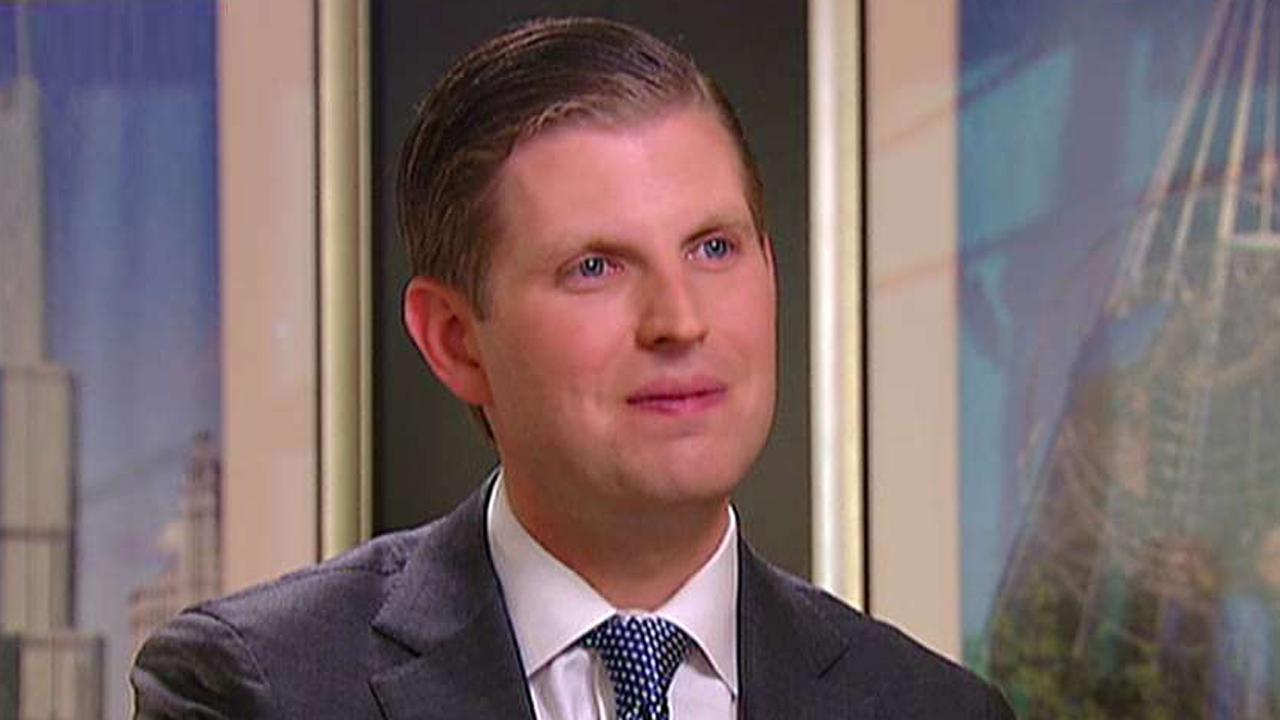Eric Trump: Trump Organization No Longer Expanding Internationally
Eric Trump, in his first interview since his father Donald Trump was elected president, said on Sunday the Trump Organization plans to stop development of real estate projects overseas.
"In light of politics, we’ve said ‘hey, listen, we’re not going to expand anymore internationally. We’re not going to do any new international projects.’ And that was a big piece of what we did,” Trump, who is executive vice president of the organization, told Maria Bartiromo in an exclusive sitdown on “Sunday Morning Futures.”
Eric, along with older siblings Don Jr. and Ivanka, all have or have held positions within the family business prior to their father winning the presidential election. Once President Trump took office, he pledged to separate private interests from public policy. One way the president did this was by putting his holdings in a trust, managed by his sons and another executive from the company.
Though no longer growing internationally for the time being, Trump explained how he finds the next growth spot in the real estate market, saying part of it is “gut” and “intuition.”
“You see places that are reducing taxes, they’re trying to incentivize businesses to come in. Those are always the places that do immensely well,” Trump said, citing Florida as a key example.
“They have low taxes, they’ve got an incredible quality of life. Real estate prices weren’t astronomical, meaning you could move from a state like New York into Florida—you could get a much bigger bang for the buck,” Trump said, adding “I think you’re seeing that right now in a lot of markets in Texas. You certainly saw that in North Carolina, South Carolina and other states that really grew massively.”
Additionally, Trump explained how his father’s pro-American business agenda has impacted the company, which has properties and deals all over the world.
“I don’t think one and two are contrary to one another,” Trump said. “But I think when people abuse the system, they can be. I think the difference with us is we might do a project globally, but all the money comes back to the United States.”




















